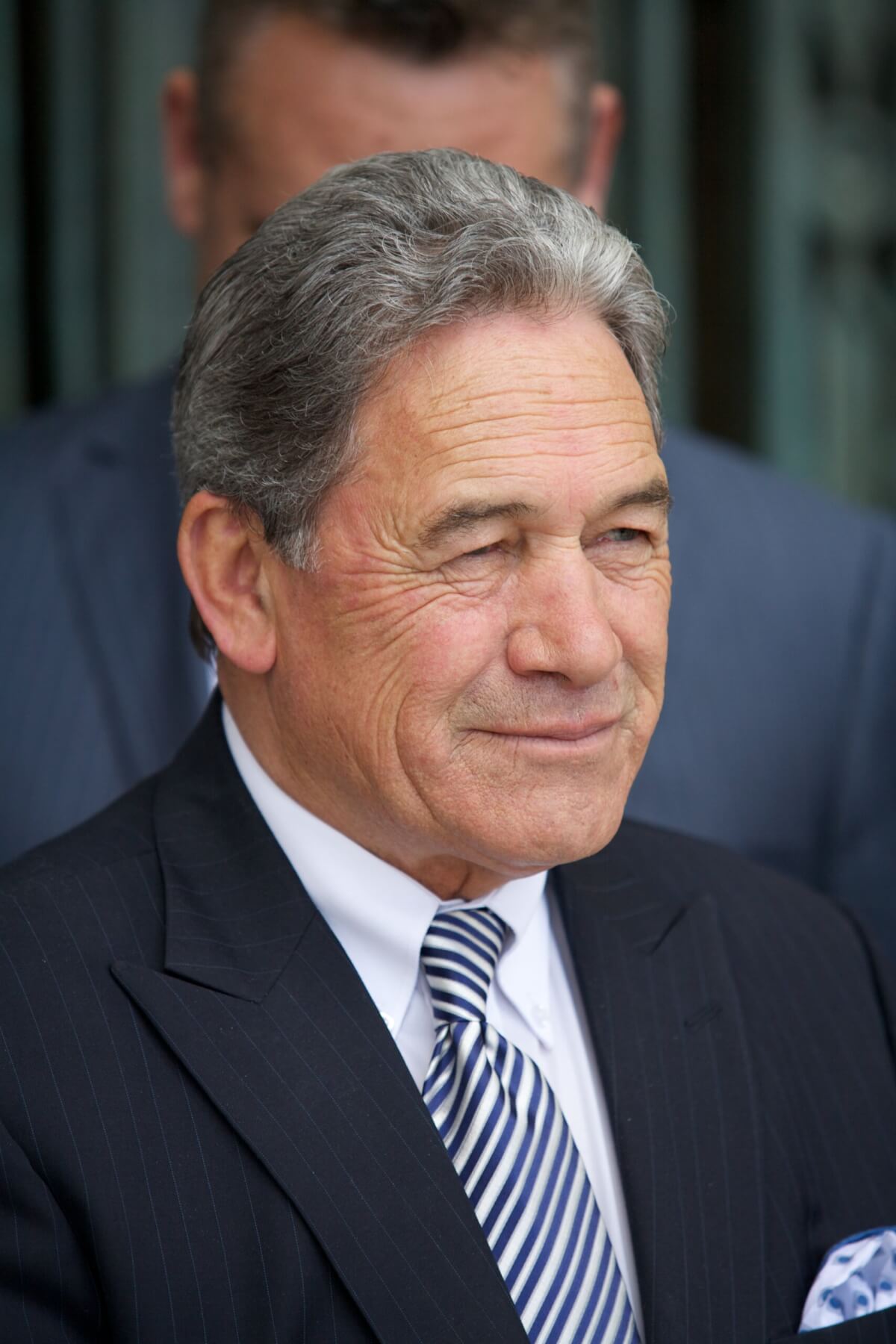
Barbara Kuriger
Deputy speaker Barbara Kuriger has revealed how emotional she felt in Parliament last week while she was sitting in the Speaker’s chair during the debate on punishments for three Te Pāti Māori members.

Louise Upston, Sophia Goodrich, Brylee Gibbes, Barbara Kuriger in Parliament three years ago.
The Taranaki-King Country MP fought back tears as she adjourned proceedings in the House following the suspensions of Te Pāti Māori co-leaders Debbie Ngarewa-Packer and Rawiri Waititi for 21 days, and Hana-Rawhiti Maipi-Clarke for seven.
Talking to The News she said it was a tough afternoon made worse by the absence of speaker Gerry Brownlee and assistant speaker Maureen Pugh – both attending the same funeral – and the other assistant speaker Teanau Tuiono, who was sick.
The burden of presiding over the challenging debate fell in turn to Kuriger, Labour’s Greg O’Connor and Tangi Utikere, who was in the Speaker’s seat for the first time.
“It’s like wow, that’s a baptism of fire on your first day as a speaker to have to come in and do that. But I thought Tangi did really well,” she said.

Barbara Kuriger
At the heart of the day’s tension was a breach of parliamentary rules. While all parties agreed on what had occurred, the Privileges committee could not reach consensus on the appropriate punishment.
“That was the hardest part. It pitted one side of the House against the other. If the committee had agreed on the consequences, the debate would have taken a different tone,” she said.
The debate became emotionally charged because what was fundamentally a procedural issue – disrupting a vote and crossing the floor – was taken to mean a criticism of the haka.
“It wasn’t about the haka. It was about the rules being broken.”
Kuriger and the other speakers were all tested during the three and a half hour debate including one instance when she had to intervene during a disagreement between National’s James Meagher and the Greens’ Chloe Swarbrick.
“I helped to resolve an issue that happened in front of me when (Meagher) was pointing.”
Swarbrick said he had pointed a finger gun at her, which was one of the accusations originally made against Te Pāti Māori, and which Meagher strenuously denied.

Winston Peters
Parliament is full of orators, some of them were good – Kuriger singled out Labour MP and former Speaker Adrian Rurawhe – and some not so good. New Zealand First leader and former deputy prime minister Winston Peters fitted into that category when he described Waititi’s mataora (facial tattoo) as scribbles.
“I thought Adrian came from the wisdom of a previous speaker and what summed it up for me was when he said there are no winners in this debate. That was a really relevant point to make.”
She also praised Maipi-Clarke, the youngest member of Parliament. “She’s a very strong, classy young woman and she’s learning a lot you know.”

Hana-Rawhiti Maipi-Clarke
The debate came to an earlier end than expected and Kuriger was impressed with how that was agreed to by all parties, something television coverage did not pick up.
“It took me by surprise. All the parties, including Te Pāti Māori, were running around talking to each and actually it was Te Pāti Māori who moved the motion to conclude the debate and they were all working together on that issue.”
Kuriger, who returned to Fieldays yesterday in her traditional volunteer’s role, reflected on the emotional toll the day in Parliament had on her.
“You’re dealing with people. Take the politics out of it and it’s still about people. It was hard.”
The 64-year-old Opunake farmer is into her fourth term as Taranaki-King Country MP and first term as deputy speaker.
“I really enjoy the job, sitting in the middle because both sides always think they’re right but the answer always lies somewhere in the middle.”

Barbara Kuriger








